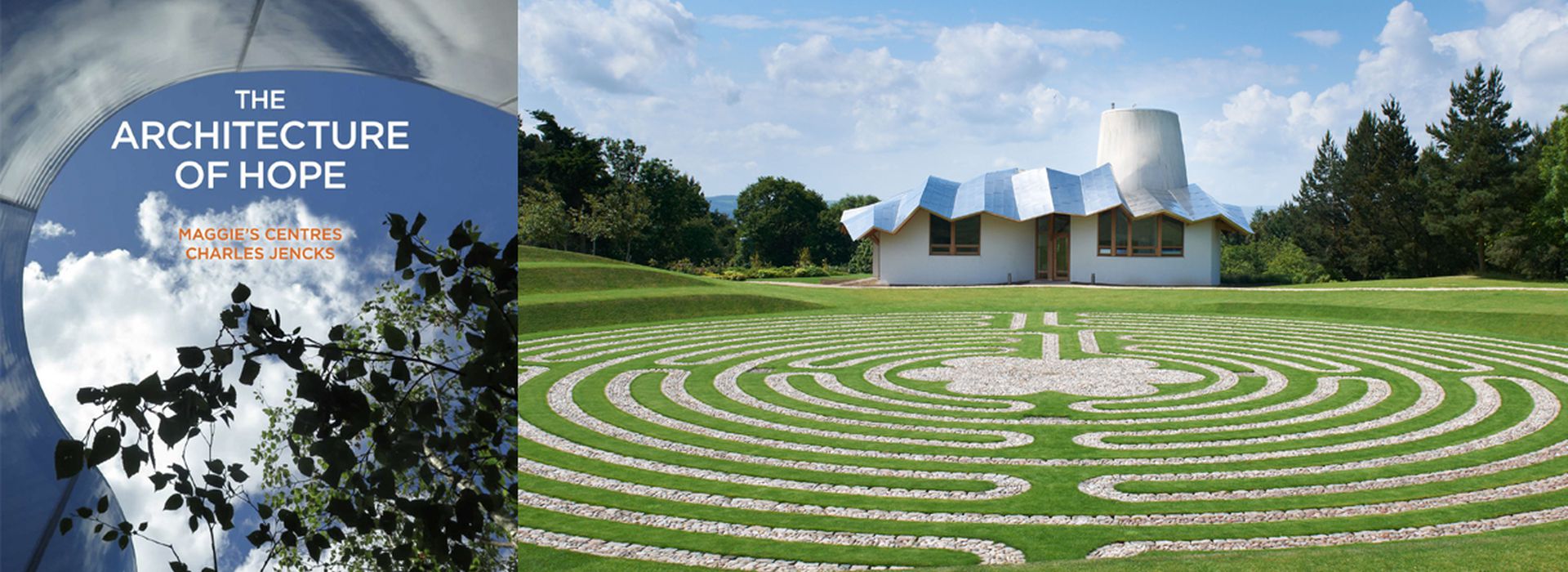Tuesday 16 November 2021

We organised a panel talk to celebrate the launch of The Architecture of Hope (Third Edition).
Never has the importance of the built environment on public health been more important and more widely discussed than it is now, as we come out of a pandemic.
For over 25 years Maggie’s has championed the impact that design can have on health, supporting people with cancer from our centres across the UK and abroad, designed by a plethora of outstanding architects, landscape and interior designers.
Maggie’s Co-founder, architectural historian Charles Jencks, completed his third edition of the acclaimed book, The Architecture of Hope, as his last project before he died in 2019.
The updated edition shares new essays exploring the relationship between cancer and design and the future of cancer care.
As the book was released posthumously last week we took the opportunity to celebrate the evolution of the concept that buildings can heal, the legacy Charles left behind.
Following an introduction from Maggie’s Chairman Stuart Gulliver and Lily Jencks, an architectural designer and landscape architect and Charles and Maggie's daughter, we organised a panel talk hosted by Will Gompertz, Former, BBC arts editor and director of arts, Barbican Centre.
Will Gompertz was joined by Edwin Heathcote, Architect, critic and co-author, The Architecture of Hope, Amanda Levete, Principal AL_A and architect for Maggie’s Southampton and Alex de Rijke, Founding Director of dRMM; architect for Maggie’s Oldham to discuss and explore Maggie’s revolutionary approach to human-led design and what we can learn from it and apply to building design in a post-covid world.
With thanks to our sponsors Sir Robert McAlpine and partners SALUS Global Knowledge Exchange the panel discussion was live-streamed to an audience around the world and kindly edited and shared for you to watch today.
Maggie and Charles’ vision and understanding of the built-environment and the positive impact it could have on people, as individuals and as a collective community, was way ahead of their time.
Throughout the past 25 years I have seen firsthand, time and time again how people who visit Maggie’s respond to the building itself. I’ve watched their reactions and the difference in how they moved, sat and spoke around each other.
Freed from the necessary formality and clinical space of the hospital, people walk into Maggie’s and feel that they can be seen as individuals. The environment tells them that they are listened to and empowered to make choices that work for them. The power of this should not be underestimated.
As we move forwards Maggie’s is needed now more than ever as places that pioneer human-led design and truly understand the positive impact that human contact and community can make to the way we approach healthcare.
Throughout COVID-19 our doors stayed open to support people with cancer in person as we know that face-to-face support and the buildings that facilitate this support is where a therapeutic community can grow and truly thrive.
Dame Laura Lee, Maggie's CEO
The book, Co-Written by Architectural Historian Charles Jencks and Architect, Designer and Critic Edwin Heathcote is available to buy here for £25.00 plus postage and packing.
To find your nearest Maggie's centre, enter your postcode or town below.
Stay up to date with our news and fundraising by signing up for our newsletter.
Sign up